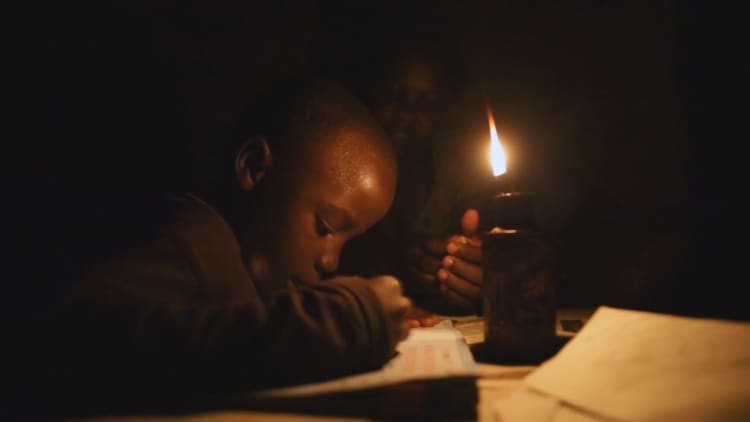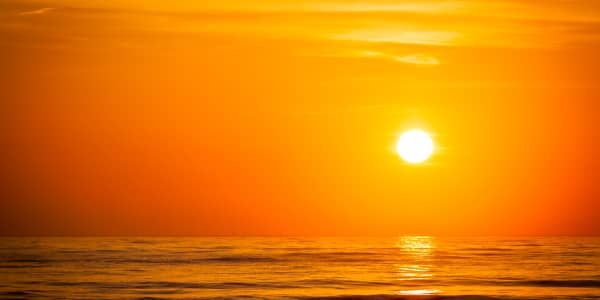
When we go home tonight to fix up supper or read a good book, we may take for granted our ability to generate heat and light with the simple flick of a switch.
In some parts of the world, however, lack of access to affordable, clean and reliable energy is a serious problem. According to the International Energy Agency, 1.2 billion people around the world do not have access to electricity, while over 2.7 billion people live without clean cooking facilities.
In Africa, the lives of many people are made harder by a lack of access to reliable sources of power.
"The situation in Africa at the moment is quite significant, over 40 percent of the population does not have direct access to energy," Ponmile Osibo, from the African Private Equity and Venture Capital Association, told CNBC's Energy Future.
Many people living off-grid use kerosene lamps for cooking and lighting. While this can be cheap, the environmental and health hazards are considerable.
"Kerosene contributes three percent to global CO2 emissions, which is not an insignificant number, and produces indoor fumes, which has been shown to cause 600,000 preventable deaths on a yearly basis in Africa alone," Osibo said.
One piece of kit looking to push kerosene out of people's homes is the GravityLight. "GravityLight was invented by two designers looking for a safe alternative to kerosene lamps, which are used by over a billion people without electricity," Caroline Angus, co-founder of the GravityLight Foundation, said.
The cost of the GravityLight will depend on whether it is sold in the developing or developed world. In the U.K., for example, it is set to sell for £49 ($63), while in Kenya it will cost roughly 2,500 shillings ($24.70). Once a user has set it up, it costs nothing to run.
"Gravity Light is an off-grid light. It's powered by just lifting a weight, so you fill a bag with rocks or sand and winch up the weight, and as it gradually falls, it will turn a gear box which generates power," Angus added.
For one villager, the Gravity Light has the potential to be life-changing. "This light will benefit me and my children, they will be able to read well, food will be cooked well in the evening, and the whole house will be well lit," they said.
Gravity Light is just one of many new ideas that are looking to help off-grid communities reliant on harmful, outdated energy sources. Other examples include pay-as-you-go solar energy companies and rollable solar arrays that can be deployed very quickly.
"The need for light is universal," Angus said. "Given there are solutions out there that can replace a kerosene lamp… we need to urgently get those out there," she added.




